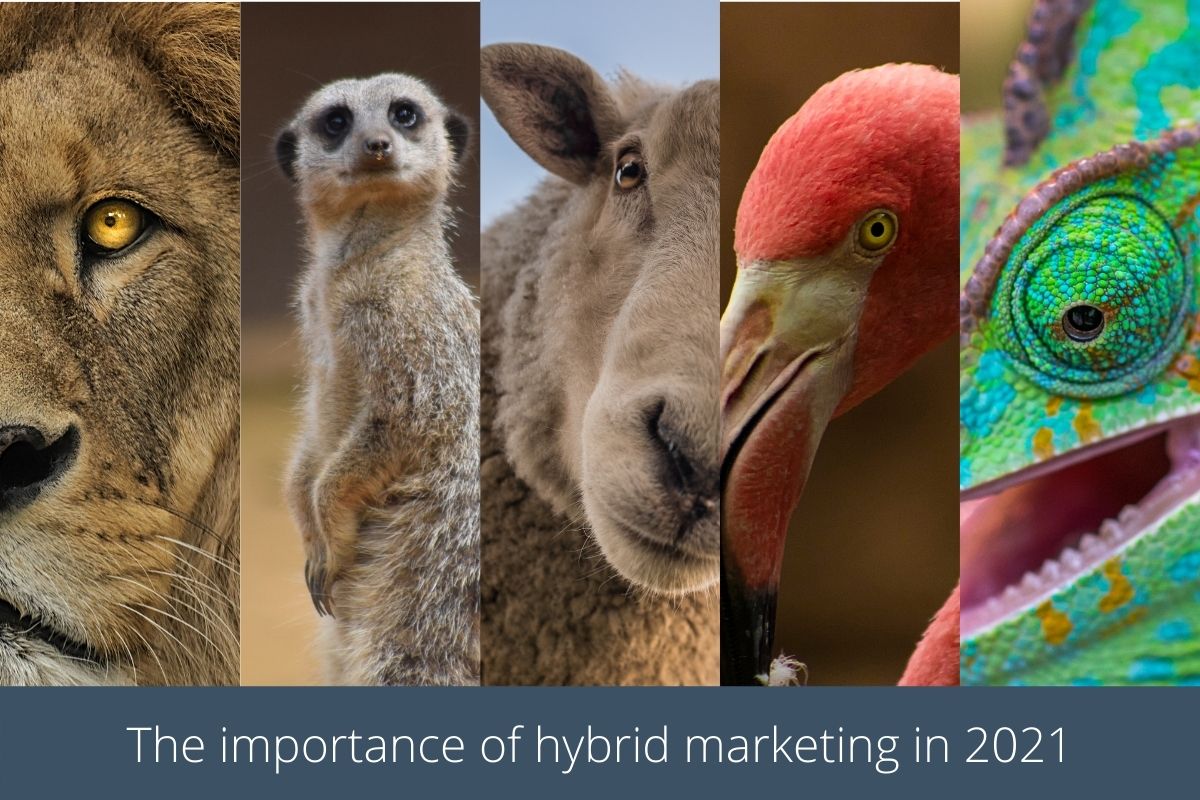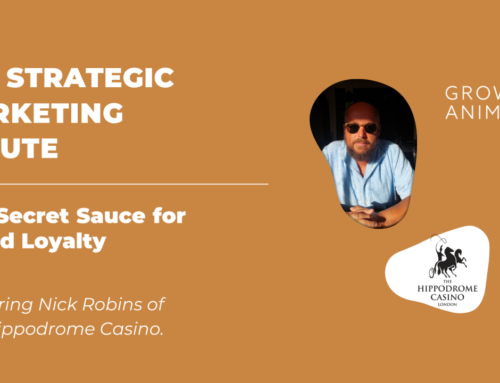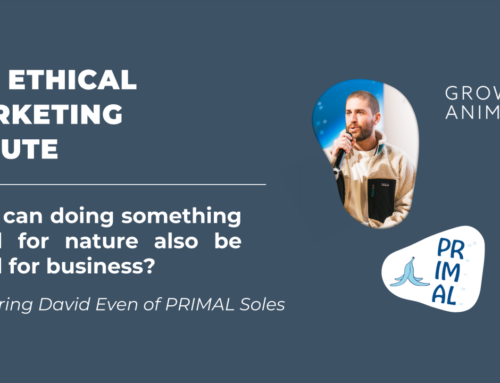The importance of hybrid marketing in 2021
1 min read

‘Everybody has a plan until they get punched in the mouth’ – Why a hybrid approach is the right way to structure a marketing department in this new era of uncertainty and why Mike Tyson knows best.
What exactly is the right way to structure a marketing department, at a time when the phrase ‘it’s not black and white’ has never been more appropriate? Like with most things in life, the answer isn’t simple. As senior marketers and businesses build their marketing teams, there’s already a seemingly never ending list of things to consider. Do you hire for broad roles or technical roles? Should the team be brand, product or category focused? Do you want to lead with mass marketing or hyper-targeted marketing? How does one decide between brand marketing and performance marketing? As the plethora of media, platforms and tactics available to marketers continues to grow, as does the list of options available and everyone’s professional opinion is different. Couple all of this with the current age of the ‘new normal’(sorry, that phrase was always going to be dropped in at some point!), where uncertainty reigns supreme and flexibility and pivoting (whoops, another buzzword) are to be commended, how much does that affect the marketing structure and roles needed within an organisation?
Get your foundations right first, with the four P’s
The Growth Animals believe that, at this turbulent time, organisations should favour employing a hybrid structure to their marketing, more than ever before. By combining a core of super strong, strategic marketers with a variety of specialists, the hybrid approach to marketing has seen many businesses through the pandemic. Whilst it’s critical that marketing teams are able to adapt plans and activity, in response to this weird world which currently we live in, it’s also important not to ignore the fundamentals of marketing. We should all be continuing to plan ahead and to do so with an appreciation of the full marketing mix at our disposal, not just via focusing on digital tactics.
With this in mind, it’s important that there are people, within an organisation, considering the four P’s: product, price, place and promotion. Even though this foundational model for business may feel ‘so last decade’ to those which preach that ‘The four P’s of Marketing are dead’ (‘It’s now 7P’s’ or ‘It’s now 14.5P’s’), the building of a plan that thoroughly considers the four P’s when marketing a product or service is crucial. The marketing organisations really making an impact are keeping this in mind, by still hiring for broad strategic roles, ensuring that rigorous long-term planning is always at the heart of the business.
Dodge punches by being flexible
The pandemic has given Mike Tyson’s famous quote new meaning. According to the boxer “everybody has a plan until they get punched in the mouth.” The metaphorical punch in the mouth that is COVID-19, has forced plans to change on a scale rarely seen before and the businesses that have been able to flex their plans have often fared best throughout. This doesn’t necessarily mean that the roles within a marketing department need to change drastically, but it does provide a case towards being more flexible. Marketing plans should account for different scenarios and organisations should be open to outsourcing and bringing in flexible resources, which can be switched on and off at short notice. Pre-pandemic, it was more of the done thing to have the entirety of a marketing team in-house. Will this now change, as organisations weigh up the cost of large headcounts and workers notice the attractiveness of a freelance approach to work? Quite possibly.
Empower marketers with the ability to outsource
When it comes to marketing team structure, there’s another raging debate bubbling away amongst the marketing forums, with Mark Ritson and Gary Vaynerchuk standing in opposing corners of the ring. Whilst Professor Ritson believes in the importance of a classic strategic, targeting and segmentation approach, Vaynerchuk is ready to rip up the rule book in favour of diving straight into social media and content marketing. The debate leads to highly entertaining articles from the former and humorous comments from fans of the latter, but the answer to ‘who’s right?’, of course, is not black and white. The fact is that all brands require strategic marketing minds across them, to provide a breadth of planning that cannot be delivered by specialists alone. However, there is an increasing need for specialist skills, particularly when, for example, brands want to play seriously within the e-commerce space.
As an example of how investing in key skills can aid growth, the Growth Animals have seen the incredible increases in organic traffic, which can be delivered through a fairly modest investment in SEO, first hand. That, however, doesn’t mean that we should be rushing to bring an SEO specialist in-house. When starting with a new, specific marketing focus, it’s best to begin small and empower the strategic marketers already within the team to outsource the new skill that you’re trying to add to your tool box. Only when the level of work grows, exceeding the cost of an in-house role, is it the time to consider an internal hire. Whereas strategic, brand and creative marketing roles are a long-term investment, the specialist digital roles are the ones to invest in for the short-term. The latter can and should be able to demonstrate a ROI, so you can switch it on, or dial it up whenever you see fit.
Use automation to free-up precious time
The other factor to consider when moulding a hybrid marketing department, is the role of marketing automation in areas such as eCRM. Like new and technical specialisms, it’s no panacea, but it can become a very useful instrument in your marketing tool box, freeing up time for your creative and strategic marketers to do what they do best. This approach may even reduce headcount too. A word of caution though; before you start going automation crazy, it’s paramount that you have a deep understanding of your customers. Automated marketing needs to be personalised, and feel personal to the customer too. This requires marketers to know exactly who they’re talking to and creative, strategic brains to come up with ideas for communications that will inspire your customers to engage with your brand.
Sun Tzu’s famous quote: ‘strategy without tactics is the slowest route to defeat and tactics without strategy is the noise before defeat,’ perfectly describes why both strategic and specialist marketing need each other to truly succeed. For all the conflicting views on either side of the debate, a hybrid marketing structure gifts organisations with the best of both worlds. This is why we embrace the hybrid approach at Growth Animals. We place great importance on the need to have strong, strategic thinkers at the heart of our team, complimented by a small contingent of highly skilled digital marketing experts and further bolstered by a trusted and flexible flock of freelancers across multiple disciplines. It enables us to be adaptable accelerators of performance, who provide clever thinking and clever doing.




